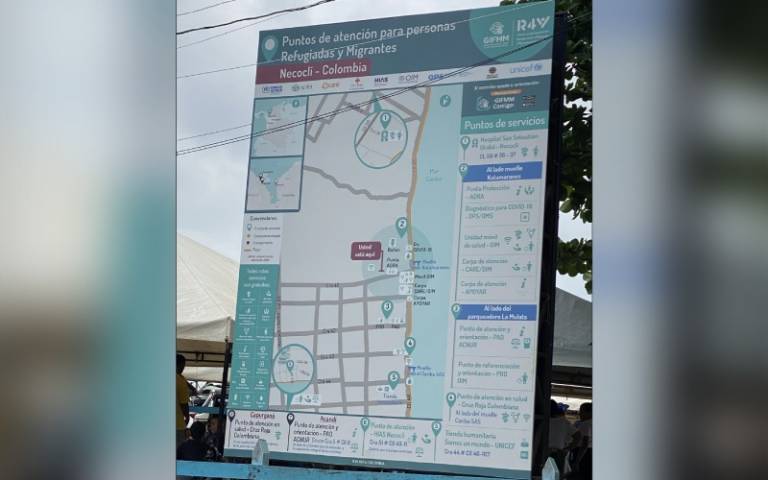Life on the edge: a place-based Rapid Appraisal of migrants' and community health needs in Necoclí
Exploring the practical problems from the perspectives of migrants and community members on health and well-being.

1 September 2022
Necoclí is a coastal town (13,700 inhabitants) of Columbia, facing severe challenges due to unprecedented migrant transit. In 2022, the United Nations Office for the Coordination of Humanitarian Affairs (OCHA) alerted the situation, with reports counting 4,000 migrants living in informal settlements and 1500 – 1600 migrants crossing the border to Panama daily on their way to North America. The migration has created tension in the municipality, particularly regarding harsh sanitation conditions, transmittable diseases, water and food insecurity, and the proliferation of illegal activities.
The project evaluated self-perceived practical problems from the perspectives of both migrants and community members relating to migrant and community health and well-being to support and inform local displacement responses. A Rapid Appraisal questionnaire supported by local partners asked nineteen participants, including, ten migrants, five NGO employees and four employees from private and public health institutions, about physical and mental health services available access to services, water, sanitation, and hygiene (WASH) and communication and coordination between humanitarian aid agencies. The findings showed that physical and mental health services were available to migrants through NGOs, the local hospital or private health centres. Mental health services included services for suicide risk, telepsychiatry and health professionals providing psychological support and psychosocial care. The key mental health identified was anxiety. However, the lack of a psychiatrist in Necoclí affected migrants and the local community. Medication and testing facilities were insufficient for infectious diseases such as HIV and tuberculosis. Interviewees also highlighted that it was not possible to access their vaccination records.
The study explored water, sanitation, and hygiene (WASH), food security and living conditions. Regarding WASH, there were limited drinking water available and sanitation services. NGOs highlighted that many of the health problems that migrants faced were related to the lack of basic hygiene needs. Few organisations could provide free food for the migrants, and migrants could not afford to stay in hotels and instead would camp outside.
The number of humanitarian aid organisations significantly increased when starting the project. A roundtable organised by GIFMM (the Interagency Group for the Mixed Flow of Migrants) discussed action plans for migrant protection. The group produced a technical sheet with general guidelines for the aid response.
In December, Dr Vera San Juan and Dr Vindrola Padros will hold a community forum to share findings and engage all stakeholders in defining solutions to the main health and well-being issues identified in the study.
 Close
Close


